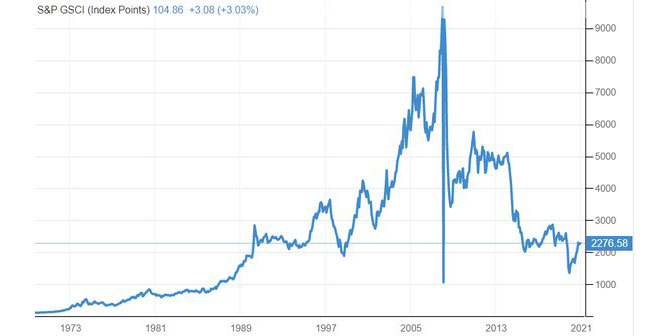Reverse Mortgages and Irrevocable Trusts: A Practical Guide for Seniors and Their Families
Dec 14, 2024 By Verna Wesley
To many seniors, homeownership means more than just a roof over their heads; it's a nest they've grown into over many decades. However, as retirement stretches out, the cost of living and healthcare may make tapping into that equity a good idea. That's where a reverse mortgage can come in to help homeowners use cash trapped in their homes without selling or moving. Yet what if you wish to guarantee your home remains a family asset? Irrevocable trust is a legal tool used to protect assets for future generations. An irrevocable trust pairs well with a reverse mortgage, which can open new money doors while protecting long-term interests.

In this article, we will explain what reverse mortgages and irrevocable trusts are, how they work, and why they might be a great combination to use in your estate planning. Knowing these options will help you select the ones that meet your financial needs as well as your legacy goals.
What is a Reverse Mortgage?
A reverse mortgage is a financial product aimed mainly at homeowners 62 and older that enables them to convert some of their home equity into cash. Unlike a traditional mortgage, you get what you pay for a reverse mortgage pays you, either as a lump sum, a line of credit, or monthly payments. Usually, the loan is repaid when the homeowner sells the house, moves out, or dies.
Reverse mortgages come in a few key types. The most common is insured by the Federal Housing Administration (FHA) and is called the Home Equity Conversion Mortgage (HECM). Private lenders also offer proprietary reverse mortgages, which are usually only available for homes of high value, and single-purpose reverse mortgages, which are less common and have limited uses approved by the lender.
Reverse mortgages can be a lifeline for retirees who want to age in place, providing much-needed funds to cover daily expenses, medical bills, or home improvements. However, they also come with considerations, such as fees, interest rates, and the fact that they reduce the equity you have in your home over time. A reverse mortgage can be beneficial, but only if it fits into a broader financial and estate plan.
What is an Irrevocable Trust?

An irrevocable trust is a type of trust that, once established, cannot be altered or terminated by the grantor (the person who created the trust) without the beneficiary's permission. This type of trust is commonly used in estate planning because it can help protect assets from creditors, reduce estate taxes, and control how assets are distributed to heirs.
With an irrevocable trust, the grantor essentially relinquishes control over the assets placed in the trust, handing over management to a trustee. The trusts assets are no longer considered part of the grantors estate, which can be beneficial in shielding these assets from estate taxes or Medicaid spend-down requirements.
An irrevocable trust can serve many purposes, such as providing for minor children, supporting family members with disabilities, or managing wealth in a tax-efficient way. However, because its so permanent, an irrevocable trust should only be set up after careful consideration and usually with the assistance of an estate planning attorney.
Combining Reverse Mortgages with Irrevocable Trusts: How Does It Work?

Combining a reverse mortgage with an irrevocable trust is not a typical or straightforward process, as each involves its own set of rules and restrictions. However, with careful planning and legal guidance, it is possible to use both to meet specific financial and legacy goals.
Reverse Mortgage Eligibility Requirements
To qualify for a reverse mortgage, the home must be the borrowers primary residence, and they must retain the title to the property. This creates a potential conflict, as once a property is transferred into an irrevocable trust, the owner (grantor) no longer has control over it in the traditional sense.
Some homeowners choose to apply for a reverse mortgage first and later transfer the home into an irrevocable trust. However, doing so may prompt the lender to accelerate the loans repayment, especially if the trust arrangement violates the terms of the reverse mortgage. Seeking advice from a financial advisor or estate attorney who understands the intricacies of both reverse mortgages and irrevocable trusts is crucial in this scenario.
Ensuring Compliance with Loan Terms
If the home is already in an irrevocable trust, obtaining a reverse mortgage can become more complicated. Lenders usually require that the property remains in the owners name, meaning the homeowner may need to remove the property from the trust temporarily to qualify for the reverse mortgage. This process, while doable, requires legal oversight to ensure the loan remains compliant and does not violate any terms set forth by the lender or jeopardize the trusts protection.
Minimizing Financial Risk to Heirs
By combining a reverse mortgage with an irrevocable trust, homeowners can enjoy financial flexibility while still safeguarding the homes future. For example, a homeowner might take out a reverse mortgage, using the funds for immediate needs, and then transfer the remaining equity to an irrevocable trust to protect it from potential creditors and estate taxes.
Protecting Eligibility for Government Benefits
For seniors concerned about Medicaid eligibility, irrevocable trusts are often used to protect assets, as Medicaid has strict asset limits. A reverse mortgage can also provide funds for medical expenses, helping homeowners avoid using other assets in a way that could disqualify them from Medicaid. However, the strategy must be timed correctly; Medicaid has a five-year look-back period, meaning assets transferred to a trust within five years of applying for Medicaid can affect eligibility.
Conclusion
Navigating retirement finances often means balancing immediate needs with legacy planning, and the combination of a reverse mortgage and an irrevocable trust can help achieve both goals. By allowing seniors to access their home equity for current expenses while safeguarding the home for heirs, this strategy brings financial flexibility and peace of mind.








